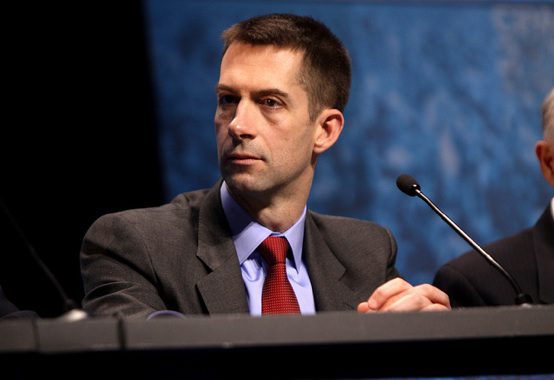The Nuclear Deal Saboteurs Aren’t Interested in ‘Fixing’ Anything

Tess Bridgeman explains why Corker and Cotton’s proposed “fix” of the nuclear deal is nothing more than a violation of it:
Their proposal calls for this automatic snapback if Iran engages in certain activities that are permitted under the JCPOA, which their bill would presumably enumerate. They call their proposed triggers for automatic sanctions snap back “enhanced restrictions” — an acknowledgment that these would be unilaterally imposed terms that weren’t agreed upon at the negotiating table.
Our most fundamental commitment in the JCPOA is that we will continue to suspend our nuclear-related sanctions, and not impose new ones, so long as Iran continues to abide by its nuclear commitments, as verified by international monitors. By Corker and Cotton’s own description, their bill would automatically re-impose our nuclear sanctions even if Iran is continuing to comply with its commitments — this violates the deal.
The Corker-Cotton proposal is a destructive one, and it is intended to be. The changes they would like to make unilaterally to the deal wouldn’t be accepted by Iran in negotiations, and the changes certainly won’t be accepted if they are imposed by Congress over the objections of all other parties to the deal. The hawks’ goal in all of this is to feign interest in “improving” the deal knowing full well that their “improvements” represent a breach of the terms of the agreement. When their attempted “fix” is rejected, the hawks can pretend that it is the refusal to accept their unreasonable demands that warrants our reneging on the deal. If they don’t have the votes in Congress for this measure, they can kick the issue back to the president or reimpose sanctions. If they manage to pass it, they will put the U.S. in violation of our obligations and risk blowing up the deal that way. The purpose is to sabotage the deal one way or another while avoiding as much of the blame for sabotaging it as possible.
Bridgeman notes that if Iran’s parliament did something comparable, it would obviously be considered a violation of the agreement:
First, to put their argument in perspective, imagine if Iran’s parliament passed a measure that would halt implementation of Iran’s nuclear constraints and kick out inspectors if the U.S. didn’t pull our military personnel out of Iraq and provide sanctions relief beyond what we agreed in the JCPOA. We would rightly call foul immediately, with the world united alongside us. We would not take seriously an argument that Iran wasn’t violating its commitments because we could just comply with its new, unilateral demands. And we wouldn’t trust Iran to negotiate a new agreement because its word would be worthless.
I made a similar point earlier this month. Corker and Cotton are urging that the U.S. behave in a way that they would seize on as proof of Iranian perfidy if our positions were reversed, and they still have the gall to say that Iran is the party to the deal that can’t be trusted. Meanwhile, the head of the IAEA has just confirmed once again that Iran is in compliance with the agreement that they are so desperate to wreck.
Iran hawks often claim to want to “fix” the JCPOA, but it doesn’t need any fixes and is working exactly as it should. The hawks’ idea of “fixing” the agreement is akin to “fixing” a newly-built house by knocking out the support beams and a couple walls. Critics of the deal never wanted the agreement to be negotiated, and they don’t want it to succeed, and so they will do whatever they can to undo it while deflecting the blame to others as much as they can.
Comments